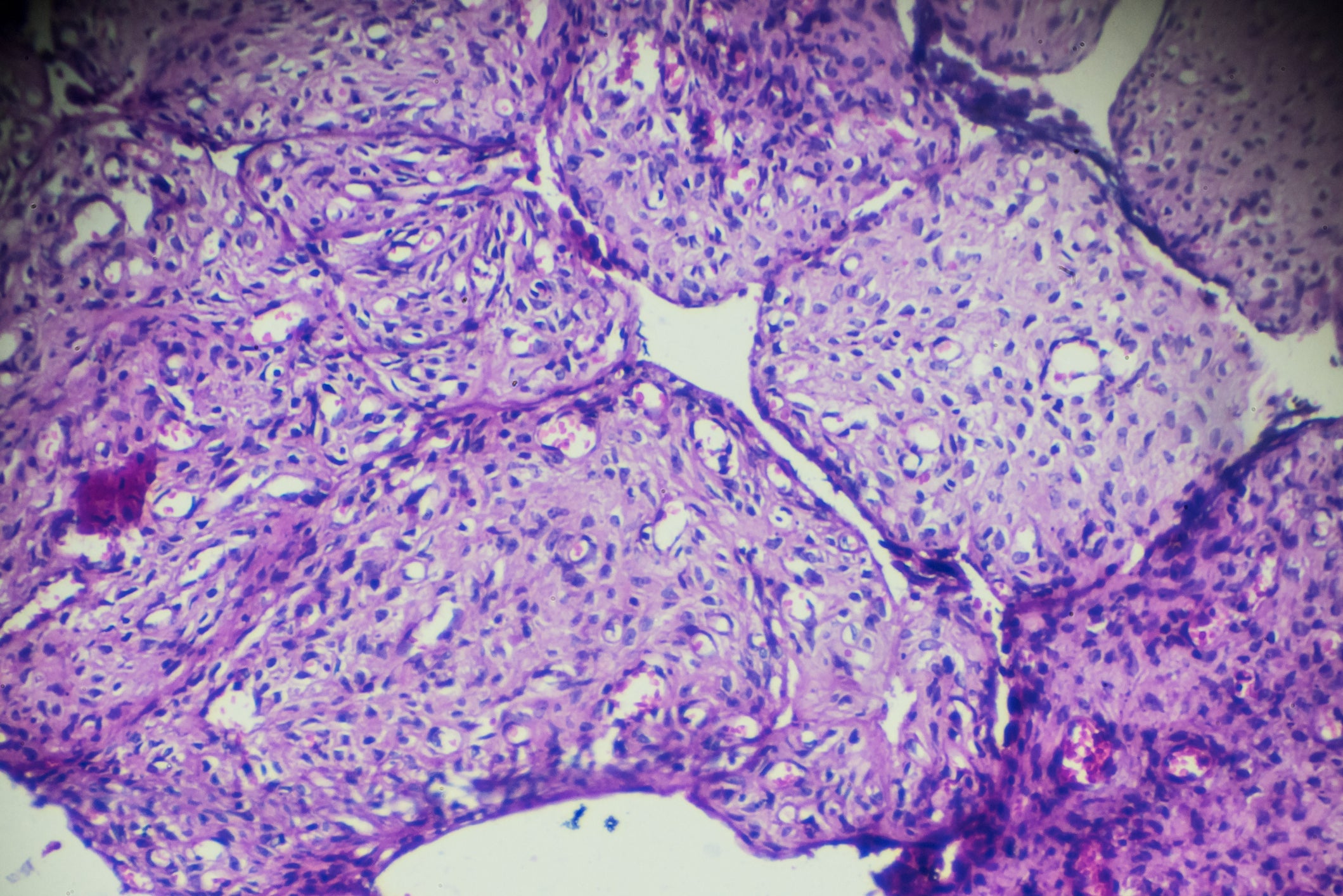One in five ovarian cancer patients diagnosed too late for treatment, new research says
'This is heartbreaking news for women and their families who have battled for a diagnosis'

One in five women in England who’ve been diagnosed with ovarian cancer are too ill to receive treatment for the condition, new research has shown.
Delayed diagnoses for ovarian cancer are very common due to failure to recognise symptoms, lack of GP knowledge on the subject and delays in acquiring the right diagnostic tests, charity Target Ovarian Cancer says.
They say this can result in many women only reaching hospital cancer specialists when their cancer is already too severe to be treated.
Patients who receive their ovarian cancer diagnosis at a later stage may be unable to endure the invasive surgery and chemotherapy required for treatment.
This can therefore lead to them having no choice over the treatment that they receive and being faced with the prospect of having to receive palliative or end-of-life care, the charity adds.
The statistics have been released as part of the Get Data Out project, in order to provide the public with more information regarding cancers that aren't as widespread as others.
Public Health England's National Cancer Registration and Analysis Service (NCRAS) provided the data for investigation and collaborated with Target Ovarian Cancer on the research.
Annwen Jones, chief executive of the Target Ovarian Cancer, emphasises the importance of ensuring that women who are suffering with ovarian cancer are diagnosed as early as possible.
"This is heartbreaking news for women and their families who have battled for a diagnosis and may have faced delays along the way," she says.
"To finally meet a surgeon or consultant only to discover that it's too late for treatment is devastating, and a tragic and needless waste of a person's life.
"We must all redouble our efforts in this area. The government's long-term plan for the NHS must include plans to eliminate delays and improve early diagnosis in ovarian cancer."
Andy Nordin, consultant gynaecological oncologist at East Kent Gynaecological Centre and president of the British Gynaecological Cancer Society, explains that late diagnoses of ovarian cancer is a long-standing issue.
"We have been aware for over 20 years that survival from ovarian cancer in the UK is poor in comparison with many developed countries," he says.
"Too many women do not know they have ovarian cancer until they are admitted to hospital extremely unwell, and by this time many are not well enough to cope with our treatments.
"We must all work together to diagnose this disease earlier."
Emma Richman, a 47-year-old woman from Poole, Dorset, lost her 64-year-old mother Linda to ovarian cancer just six weeks after receiving her diagnosis.
"I remember vividly the hospital appointment where my mum Linda was diagnosed with ovarian cancer," she says.
"The consultant said that it wasn't good news, and that my mum had stage four ovarian cancer, incurable.

"I was so upset. My mum was really brave and kept asking questions. I stayed positive around Mum but at night I cried, worrying if it was too late.
"Devastatingly Mum passed away six weeks after this appointment, with her family by her side. She had just celebrated her 64th birthday."
In October 2018, it was revealed that women in the UK with ovarian cancer are receiving their diagnoses at a far slower rate than those in other countries.
According to a study, 30 per cent of women with ovarian cancer were diagnosed within a month in the UK, in comparison to 43 per cent of women across the globe.
The figures came from the World Ovarian Cancer Coalition's Every Woman Study, the largest ever global review of the experiences of more than 1,500 women with ovarian cancer from 44 countries.
Join our commenting forum
Join thought-provoking conversations, follow other Independent readers and see their replies
Comments
Bookmark popover
Removed from bookmarks